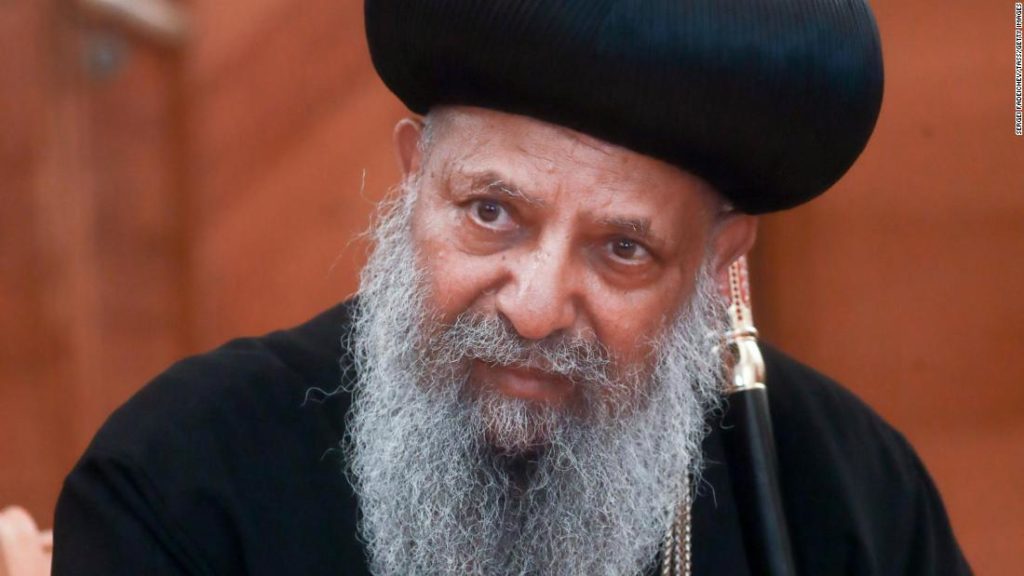Abune Mathias, a native of the northern Tigray region who lived in exile for 30 years for criticizing the country’s then-communist regime, was filmed by Dennis Wadley, director of Bridges of Hope International over a month ago.
Wadley told CNN he took the video of Mathias in Addis Ababa, where the Patriarch is under what he described as “unofficial house arrest.” The charity director said he and his wife were in the country caring for refugees and internally displaced people at the time.
“What is happening is the carnage of people — particularly the killing of innocents. The youth are being searched out in towns and in villages. Then they have been killed and thrown off the cliffs. They are not even allowed to be buried, as for example in Mahibere Dego,” Mathias said.
“These type of atrocities have never been seen so far, which is very, very offensive. Particularly the rape of women is very disgraceful, shabby, and bad. They have no fear of God or any respect for human dignity,” Mathias added.
“Unfortunately, all my messages have been banned and prevented. As a result, all my efforts came to nothing. This is because I am not allowed to speak. I spoke out and they held it back. I spoke out again and they held it back. Until now I have not had the opportunity to display my message through the media,” Mathias said.
In the video message, Mathias urged world leaders to intervene and stop the violence.
“The world governments must do something. It is urgent to decide to stop this evil action: the killing and massacre of innocents. They must stop, and the world should struggle to stop them,” he said.
The Patriarch said in the message he was unclear as to why Ethiopia wants to “declare genocide on the people of Tigray.”
“May God give you strength; be courageous; do not be demoralized; this bad season will pass away.”
CNN has reached out to the Ethiopian government for comment on the Patriarch’s allegations but has yet to receive a response.
The same statement added: “Social media posts and claims cannot be taken as evidence, regardless of whether Western media report it or not. Hence why investigations into allegations are welcome for remedial action and accountability. Resultantly the Ethiopian Human Rights Commission together with the UN Office for the High Commissioner of Human Rights are already in the pipeline to carry out investigations.”
You may also like
-
Afghanistan: Civilian casualties hit record high amid US withdrawal, UN says
-
How Taiwan is trying to defend against a cyber ‘World War III’
-
Pandemic travel news this week: Quarantine escapes and airplane disguises
-
Why would anyone trust Brexit Britain again?
-
Black fungus: A second crisis is killing survivors of India’s worst Covid wave

